Search Results
Showing results 21 to 40 of 138
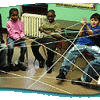
Web of Life Game
Source Institutions
In this game, learners each represent a different organism in an environment. They build a web during the activity, and discover how all the players in an ecosystem depend on each other.
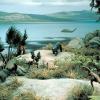
Dinosaur Homes
Source Institutions
In this activity about dinosaurs and survival, learners use scrap materials to create a miniature dinosaur habitat that includes a food source, water source, and shelter.
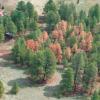
Bark Beetle Infestation Investigation: Estimation and Pheromones
Source Institutions
This activity investigates how bark beetles can threaten forests by having learners estimate the number of infected trees from a photo.
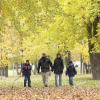
Scavenger Hunt
Source Institutions
An outdoor scavenger hunt helps learners consider the theme of "What Is Life?" Learners explore what living organisms are, including how organisms meet basic needs of food, shelter and water to surviv
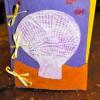
Seashell Journal
Source Institutions
In this activity, learners make homemade journals featuring seashell rubbings. First, learners transfer the texture of a seashell onto a piece of paper using a crayon.
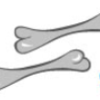
Air-filled (Pneumatic) Bone Experiments
Source Institutions
Just like birds, some dinosaurs had air-filled (pneumatic) bones, which made the dinosaurs' skeletons lighter.
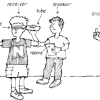
Tracking Otters
Source Institutions
This activity (on pages 38-43) has learners simulate the way scientists track and map the movement of otters in the wild using radio trackers.
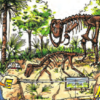
Dinosaur Interaction
Source Institutions
In this activity, learners explore why animals, specifically dinosaurs, live in families.
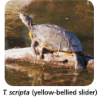
What's in the Water?: Biotic and Abiotic Elements in Aquatic Ecosystems
Source Institutions
In this investigation learners explore the differences between, and interdependence of, living and nonliving elements in a water ecosystem.
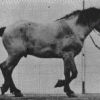
Horse Gaits Flipbooks
Source Institutions
In this activity, learners explore the gait of horses by constructing flipbooks with British photographer Eadweard Muybridge's famous photographs.
Caterpillar Measure
Source Institutions
In this activity, young learners use different-sized paper 'caterpillars' and various household items to predict and measure their height.
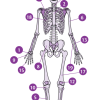
Inner Strength
Source Institutions
In this activity about endoskeletons (page 8 of PDF), learners observe, compare and contrast different kinds of chicken bones, and relate their chicken bone observations to human bones.
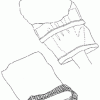
How Animals Stay Warm
Source Institutions
In this quick activity, learners explore how blubber protects animals from the cold by making a "blubber mitt." Using cooking shortening, two zip-top sandwich bags, and duct tape, learners simulate bl

Environmental Chemistry
Source Institutions
In this activity with several mini experiments, learners explore the chemistry that helps scientists learn about the environment and how they can help save it.

Walk On Water Bugs
Source Institutions
In this activity (on pages 29-35), learners examine water pollution and filtration.
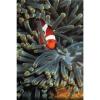
Underwater Hide and Seek
Source Institutions
In this activity, learners experience firsthand how marine animals' adaptive coloration camouflages them from prey.
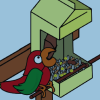
Bird Feeders
Source Institutions
In this activity, learners build a bird feeder or feeders to attract birds for observation.

What is an Animal Group?
Source Institutions
In this activity related to dinosaurs, learners explore why animals live in families. Learners discuss and identify animals living in families or groups from images and photos.
River Catcher
Source Institutions
In this activity (located at the top of the page), learners make an easy river strainer and see what they can catch.
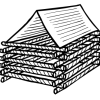
Three Little Pigs Construction Company
Source Institutions
In this activity about problem-solving, learners build a house for the Three Little Pigs using twenty straws and two index cards.
